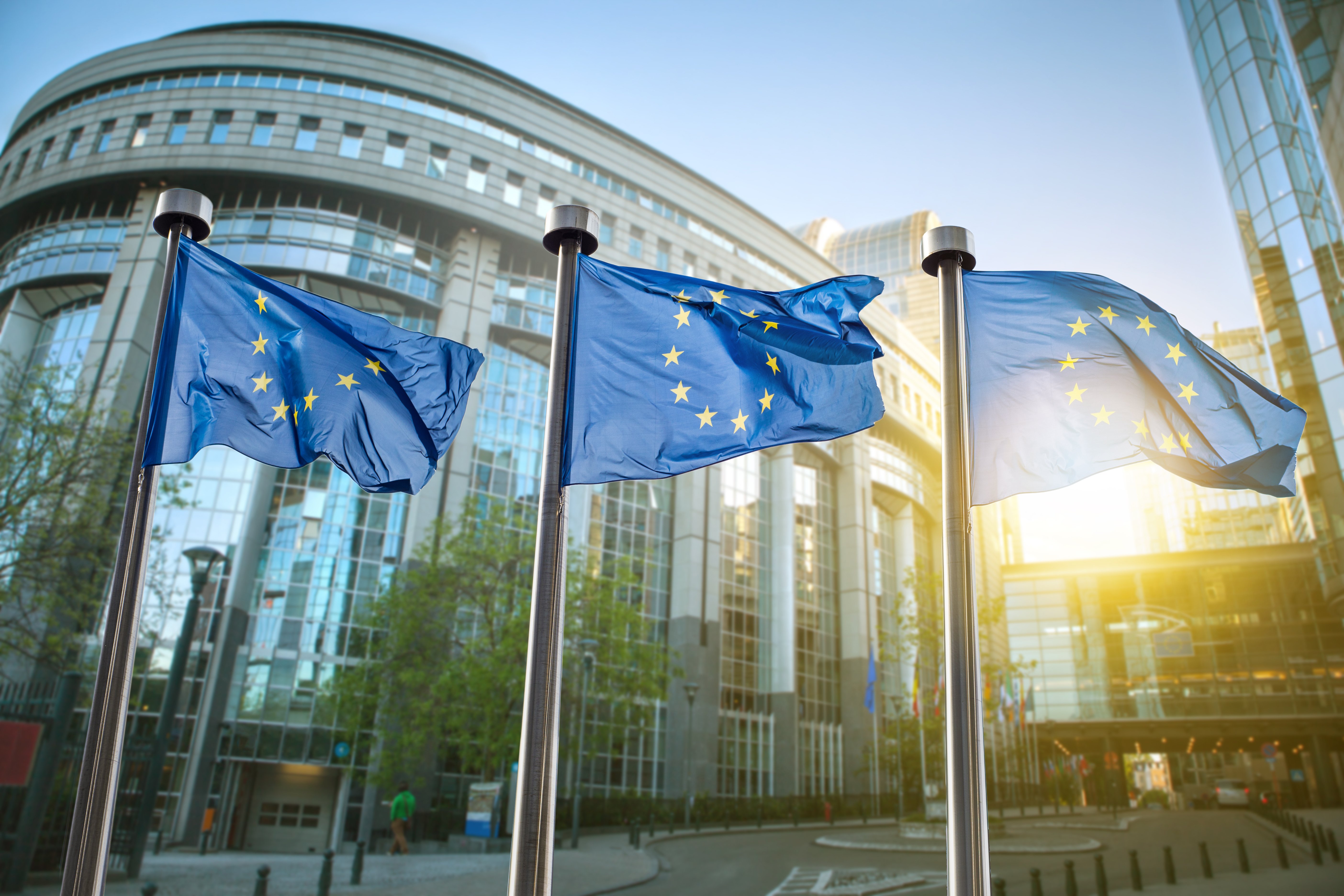A few years now after the EU’s Digital Markets Act (DMA) and UK’s Digital Markets, Competition and Consumer Act (DMCCA) have passed, regulators are beginning to challenge the behaviour of tech giants. But tech giants are pushing back — raising an important question: are they too large for legislation?
New rules for streaming giants head into final Parliamentary stretch
Written by Matthew Niblett on 28 Feb 2024
The Media Bill is a broad piece of legislation which will, amongst other things, makes changes to the way in which video-on-demand services are regulated in the UK. On 28 February, the Media Bill will have its second reading in the House of Lords, having been passed by the House of Commons. In this blog, we discuss the implications the Media Bill will have for the video-on-demand sector in the UK, as well as the next steps.
What is the EU doing to regulate artificial intelligence?
Written by Shane Cumberton on 07 Aug 2023
In this blog, we look at the steps the European Union is taking to regulate artificial intelligence.
Does regulation of AI in the UK strike the right balance for business?
Written by Pia Doering on 23 Jun 2023
In this blog, Inline Policy looks at how the UK, home to many promising AI start-ups, is seeking to balance certainty with flexibility in its regulatory framework.
The DMCC: balancing fair competition and economic competitiveness
Written by Inline Policy on 15 Jun 2023
In this blog, Inline looks at the details of the Digital Markets, Competition and Consumer Bill, what it means for businesses, and the debate surrounding the draft legislation.
The state of UK tech policy in London Tech Week 2023
Written by Mitali Sud on 12 Jun 2023
As London Tech Week gets going, we take a look at the key debates in UK tech policy and recap where all of the major new regulatory proposals have got to.
What will Rishi Sunak’s premiership mean for UK tech policy?
Written by Pia Doering on 25 Oct 2022
Once again, the UK has a new Prime Minister. What does this further leadership change mean for the UK’s tech ecosystem and regulatory environment? In this blog, Inline Policy illuminates where a Rishi Sunak premiership could land on issues such as digital competition, data protection, online safety, net zero, artificial intelligence, innovation, and foreign relations.
Digital Markets Act: EU closes in on Big Tech
Written by Shane Cumberton on 12 Oct 2022
The European Union’s Digital Markets Act (DMA) is set to establish a concrete list of dos and don’ts for the world’s biggest digital platforms when operating in the EU. These include hitherto absent ‘ex ante’ regulations to provide more fairness in the area of antitrust issues. Quite simply, the DMA aims to level the digital market’s playing field to ensure that smaller firms can operate under fairer competition.
What a Liz Truss premiership will mean for UK tech policy
Written by Inline Policy on 05 Sep 2022
Liz Truss is the new UK Prime Minister. Her premiership is likely to mean broad continuity with the previous government’s tech policy of making the UK a technology superpower, but with a renewed focus following the drift of the last few months of the Johnson premiership. This offers opportunities for tech firms, but they should be alert for a possible deterioration in UK-EU relations. In this blog we explore the impact of the new administration on the key tech policy areas.
What next for the Online Safety Bill?
Written by Matthew Niblett on 25 Jul 2022
The Online Safety Bill is the UK Government’s flagship piece of digital regulation, the British equivalent of the EU’s Digital Services Act. Prior to Boris Johnson’s resignation and the ensuing fallout, there were hopes that the bill would clear the House of Commons before parliamentary recess began on 22 July 2022. However, due to the distractions caused by the Prime Minister’s resignation, the bill still has several parliamentary stages before it becomes law , and could face further revision, depending on which one of Liz Truss or Rishi Sunak becomes the next Prime Minister. In this blog, Inline asks: what next for the Online Safety Bill?
Is transparency the key for turning AI into a force for good?
Written by Pia Doering on 20 Jan 2022
In recent years, artificial intelligence (AI) has become embedded in many of the processes of business operations, public life, and politics. Yet as AI is increasingly becoming a part of people’s lives, suspicions have mounted as to whether AI is a force for good, or whether its algorithms create bad outcomes for some of those on the receiving end of its calculations. In a 2020 survey by KPMG, only 26% of UK citizens were willing to rely on information provided by an AI or to share data with an AI. To combat the festering mistrust in AI, the UK Government published its novel Algorithmic Transparency Standard in late November 2021. This blogpost introduces the standard, evaluates its potential, and points to the questions which remain open.
Digital Services Act: EU institutions seek to tighten rules for online players
Written by Inline Policy on 13 Jan 2022
The European Union’s Digital Services Act (DSA), currently working its way through the legislative process, will create an unprecedented set of new rules for intermediary service providers. The legislation will establish a framework for content moderation and reinforce the rules for platforms that should serve to further protect the fundamental rights of all users of digital services across Europe. This blog looks at the DSA’s progress and the positions recently taken by the European Parliament and the Council of the EU. We explore how they are seeking to re-shape the original proposal and what this means for businesses and consumers.
The Online Safety Bill: what’s next and key areas for debate
Written by Inline Policy on 23 Jun 2021
The UK Government has published a draft Online Safety Bill for pre-legislative scrutiny. This marks the start of a lengthy legislative process likely to be full of lively debate. In this blog, Nicolette Stickland outlines the next steps and some areas of the Bill likely to attract scrutiny by Parliamentarians.
Cybersecurity of consumer smart devices takes centre stage post-pandemic
Written by Inline Policy on 03 Jun 2021
The Internet of Things (IoT) was already expected to change the way we live and work long before COVID-19 began spreading around the globe in late 2019. After a year in which human to human contact has been necessarily constrained, contact between all manner of devices has become more important than ever. A growing amount of economic activity is taking place remotely, and whilst some of this may shift back to an “offline” mode once the pandemic recedes, the move towards a greater dependence on internet connected devices long predates the pandemic, and so will almost certainly outlast it.
How countries are tackling market dominance by big tech ‘gatekeepers’
Written by Inline Policy on 29 Oct 2020
Several countries are focusing their regulatory attention on large tech platforms with the power to control the markets in which they operate, that have a structural impact on the economy, and whose products and services have become indispensable to consumers and businesses - so-called gatekeepers. They are trying to target remedies where they can be most effective and identify potential problems before they cause irreparable harm. How, exactly, do regulators define such impactful platforms? What criteria can be used? As governments and international institutions lay out the ground rules, now is the time for tech companies to get involved with the regulatory processes and help shape the rules. This blog looks at the state of play in key countries and compares their approaches in identifying gatekeepers.
 Insights from Inline Policy listing page
Insights from Inline Policy listing page


















